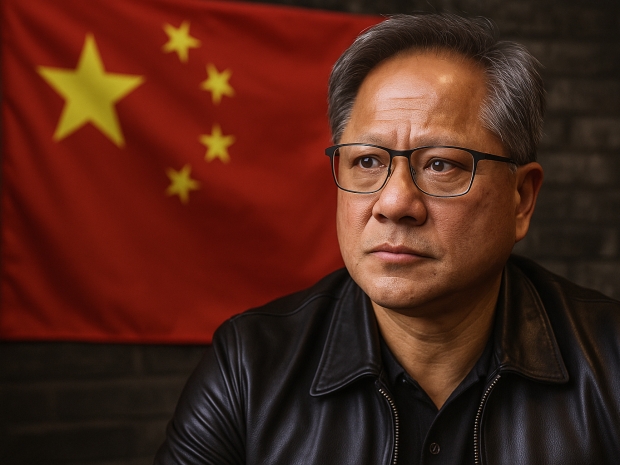The outfit's share price increased four per cent on what the cocaine nose jobs of Wall Street saw as a temporary cooling of tensions after months of trade brinkmanship between Washington and Beijing,
The shift comes after the two nations reached a fragile trade truce in Geneva in May. China responded by easing the supply of rare-earth metals critical for US automakers and manufacturers. Now, Washington is returning the favour by letting Nvidia resume limited chip sales.
The H20 chip was designed specifically to comply with US export rules. It features deliberately downgraded performance and can’t be sold in any other market, making it a bespoke product for China’s AI ecosystem.
Nvidia hardly needed the boost, given its market cap has already blown past $4 trillion, making it the first company to hit that milestone. The firm had previously swallowed a $4.5 billion charge in its April quarter because of the export ban and warned of an $8 billion hit to revenue for the current quarter.
Chief executive Jensen Huang has deftly played both sides of the geopolitical rivalry. His trips to China, including a visit to Beijing coinciding with the easing announcement, are celebrated locally as proof of his commitment to the country. Yet Huang has also maintained close ties with Trump, meeting him at the White House just last week and even dining at Mar-a-Lago.
At the same time the Trump administration clamped down on Chinese sales, Nvidia pledged $500 billion (€590 billion) to build AI supercomputer production facilities in Texas which was designed to impress a president obsessed with domestic manufacturing headlines.
Despite the reprieve, the WSJ warned that Nvidia remains stuck in the crosshairs of great-power politics. The Trump administration’s approach to negotiations has been anything but predictable. China’s own concession on rare-earth supplies is temporary and expires in six months, potentially setting up another round of high-stakes bargaining.
Adding to the uncertainty is the looming threat of tariffs. Trump has floated a 25 per cent levy on semiconductors, a move that would directly impact Nvidia since nearly all its chips are produced in Taiwan.
The the WSJ warned that Nvidia can celebrate the breathing room, but in a political climate where trade deals and restrictions can flip overnight, the party may not last long.




